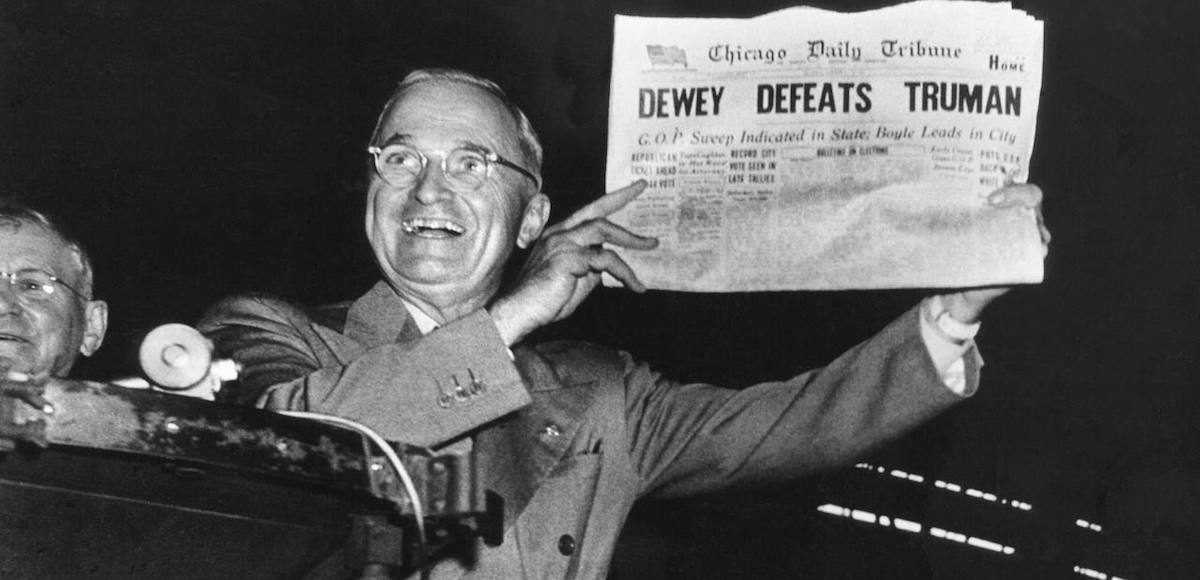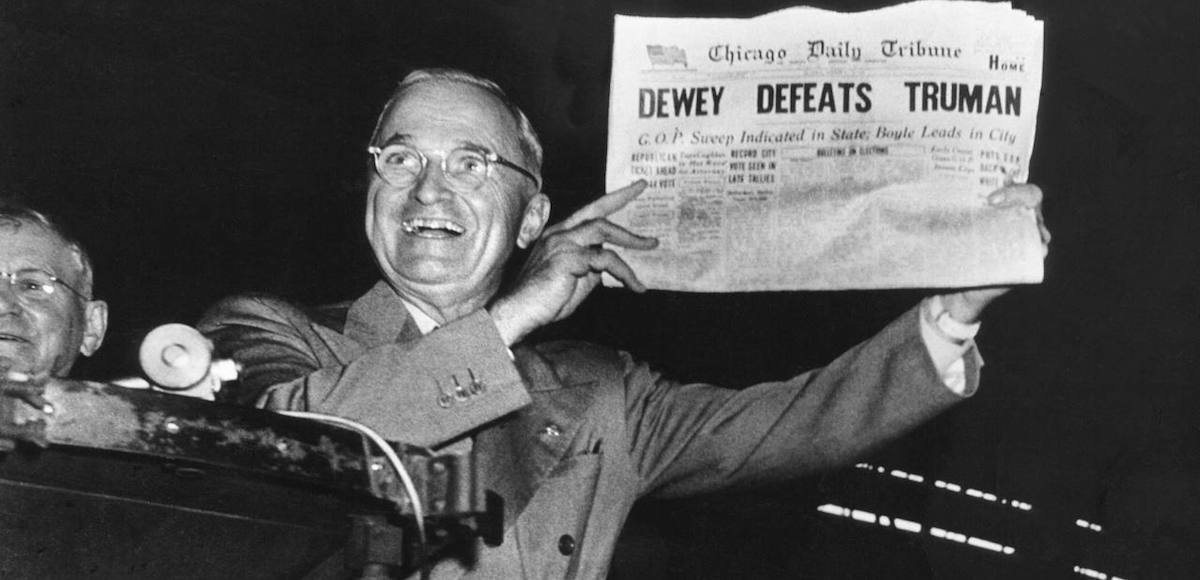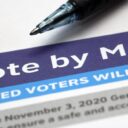

Incumbent President Harry Truman holds up a Chicago Tribune headline stating that he had been defeated by Thomas E. Dewey, the Republican candidate in the 1948 presidential election.
Voter distrust in political polls is now even worse than their skepticism toward the truthfulness of political news, hitting a new high since the previous measured last May.
A new Rasmussen Reports national telephone and online survey finds nearly 6 in 10 (57%) likely voters in the U.S. now say they do not trust political polls. That’s up from last the previous high of 55% and is fueled by skepticism and distrust from significant majorities of Republicans and unaffiliated voters.
Seventy percent (70%) of Republicans and 54% of unaffiliated voters say “No” when asked whether they “ trust most political polls?” Only 35% of Democrats agree with the majority, while 47% still say they trust the political news they’re getting and another 18% are not sure.
Even more sad, nearly 4 in 10 (38%) believe political polls are specifically designed to “block Trump from passing his agenda.”
Interestingly, men (29%) are slightly more likely than women (23%) to trust political news, though men are also more likely to identify as being a Republican. Distrust is broadly shared among all age groups, including just 29% of 18-39 year olds, 25% of 40-64 year olds and 22% of those 65 years-old or older.
Voter distrust in political news has also hit a new high since the previous record measured last June, with less than one-third still finding it trustworthy. Fifty-four percent (54%) of likely voters in the U.S. now say they do not trust political news.
The survey of 1,000 likely voters in the U.S. was conducted on April 18-19, 2018 by Rasmussen Reports. The margin of sampling error is +/- 3 percentage points with a 95% level of confidence. See methodology.








EastofEden / April 24, 2018
It won’t stop them. 2016 offered them a chance to be honest instead they decided to double down
/
Col. Ben Bannister / April 24, 2018
Fake Poll…!
I refuse to believe 40% of Americans believe polls!!!
I honestly think that the real… https://t.co/26VXsfqz3m
/
Deplorable Pepe / April 24, 2018
is the only polling source I trust. Track record of accuracy & willing to answer q… https://t.co/13fC2KBpDn
/
Happy Canuck / April 24, 2018
Trump Broke Me
/
Craig Gleason / April 25, 2018
I wonder why?
/
Terry Clark / May 8, 2018
It is essentially impossible to get an accurate polling of human beings. Polling is based upon statistical analysis, which is entirely based upon a truly RANDOM sample of the whole. That is impossible with humans. The methodology should be pull a random sample from all possible units. (First problem how to identify all the possible units) Then obtain a result from each of the samples. (Second problem, how to contact each unit in the sample and how to get a result from each unit. Humans are unavailable, or refuse to respond) Once the random sample is blown by merely one non-answer, another sample would have to be pulled, ad infinitum, you’d never get a truly random sample.
So the pollsters have to fudge the process and therefore the results. They do this by comparing their results with what THEY EXPECTED! (or experienced in the past) This obviously add bias to the polling! All polling of human beings is BOGUS! Period!
/